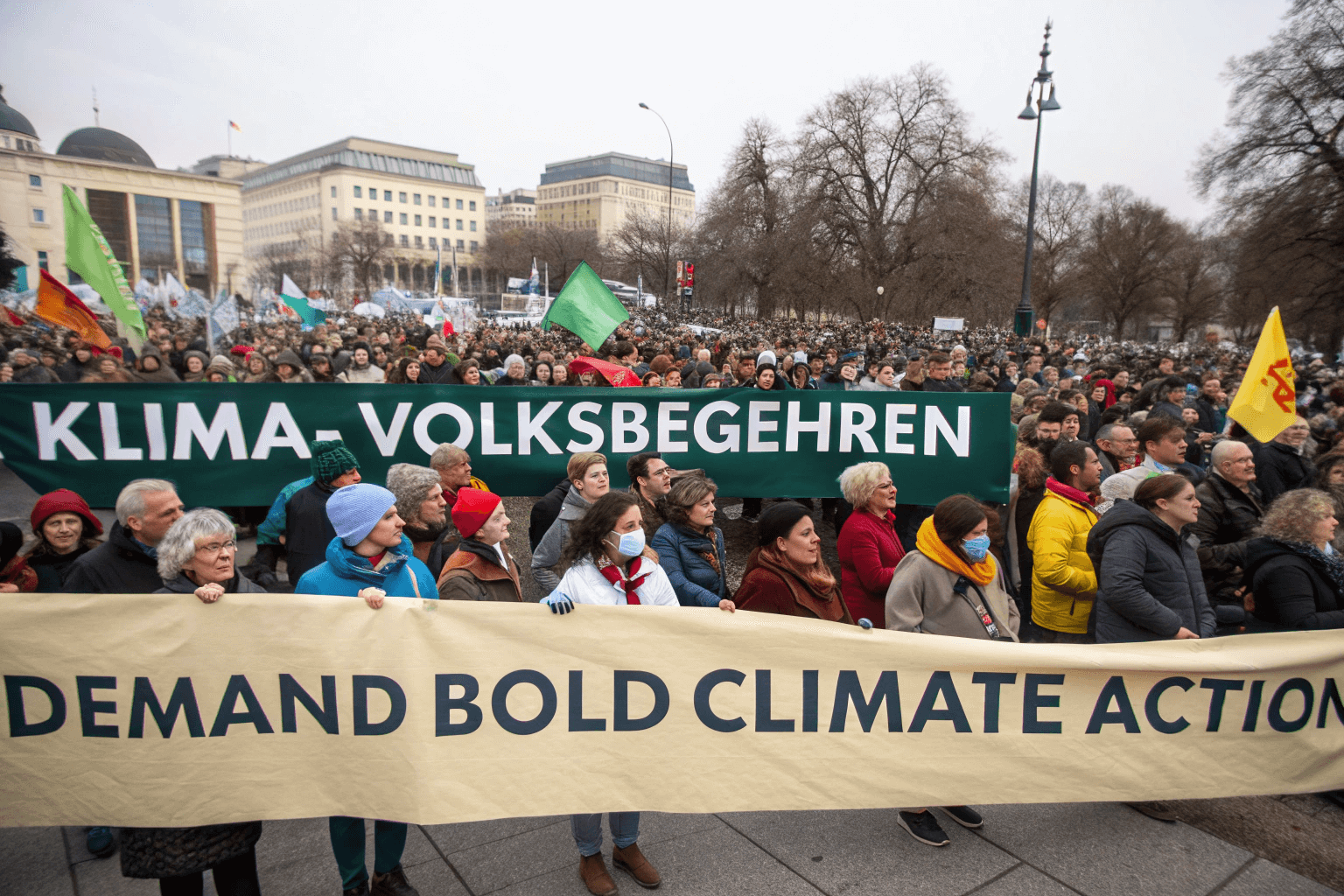In Austria, the Volksbegehren represents a powerful tool of direct democracy, allowing citizens to influence national policy by gathering signatures for a referendum. One recent initiative, the Klima-Volksbegehren, has captured widespread attention, spotlighting the urgent issue of climate change. Launched in 2023, this Volksbegehren sought to compel the Austrian parliament to address pressing environmental concerns by collecting at least 100,000 signatures. Astonishingly, it surpassed this goal, amassing over 380,000 signatures a clear signal of public demand for stronger climate action.
The Klima-Volksbegehren outlines bold demands: a constitutional amendment to enshrine climate protection as a fundamental right, a ban on new fossil fuel projects, and a commitment to carbon neutrality by 2040. These goals align with scientific calls to limit global warming to 1.5°C, reflecting Austria’s vulnerability to climate change. The Austrian Panel on Climate Change reports a 2°C temperature rise since 1880, higher than the global average, resulting in melting glaciers, heatwaves, and shifting weather patterns. For Austrians, this initiative is more than symbolic; it’s a response to a tangible crisis.
The Austrian government has taken notice, unveiling a new climate strategy that incorporates some of the Volksbegehren’s demands, including a fossil fuel ban and a 2040 carbon neutrality pledge. Yet, it stopped short of endorsing a constitutional amendment, sparking criticism from environmental advocates. “We’re thrilled so many Austrians back this cause it’s a mandate for ambitious action,” said a Klima-Volksbegehren spokesperson. Meanwhile, a government official countered, “We’re addressing the crisis, but a constitutional change isn’t needed now.” Critics argue this falls short of the systemic shift required.
The Klima-Volksbegehren’s success reverberates beyond Austria, inspiring climate referendum movements in Germany and echoing Switzerland’s recent climate law vote. It underscores the potency of grassroots efforts in tackling global challenges. As parliament debates the initiative, though not obligated to enact it, the spotlight remains on whether Austria will lead or lag in the fight against climate change.
